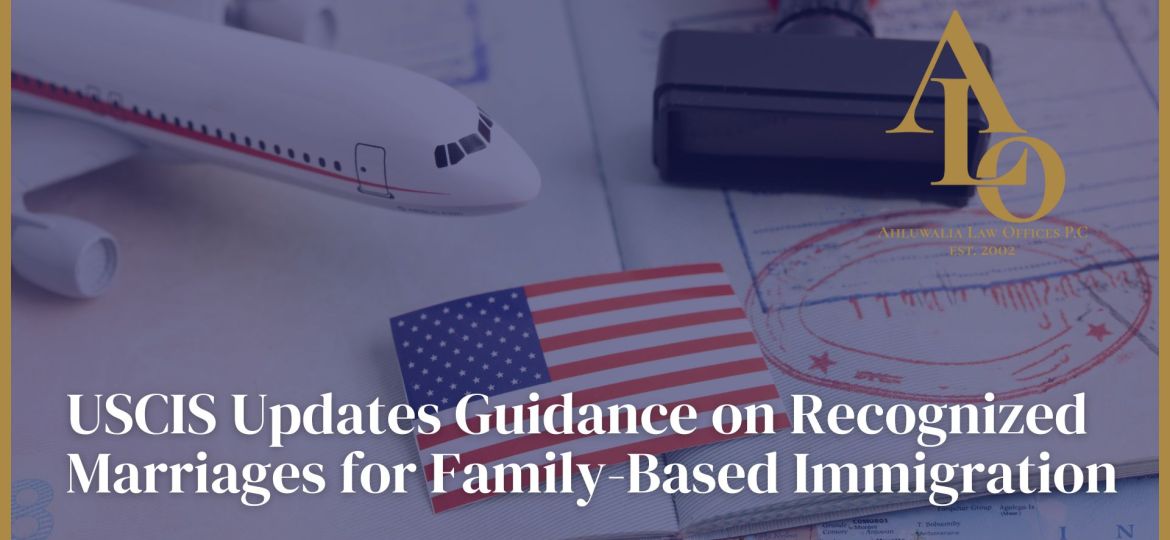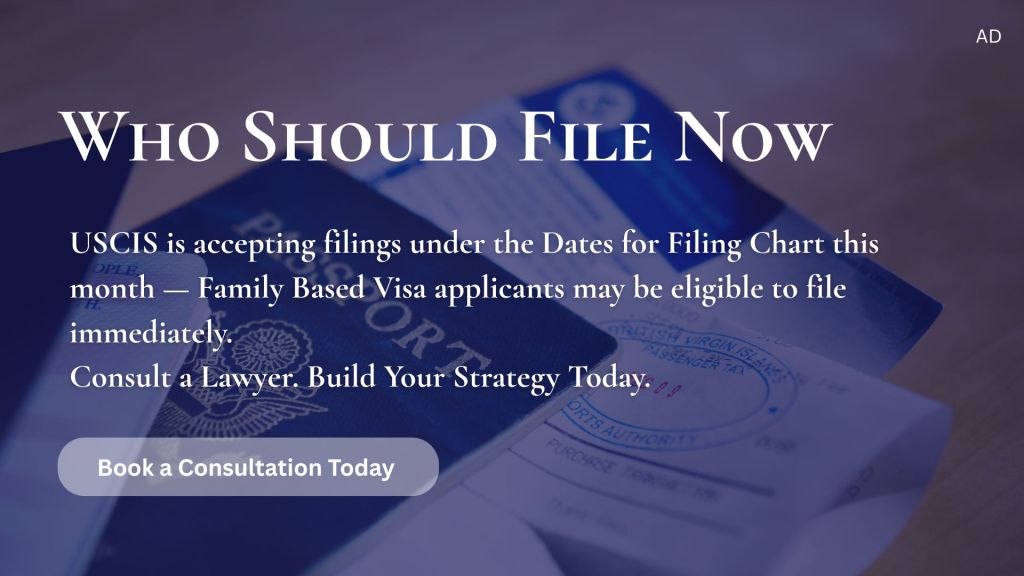
On October 17, 2025, U.S. Citizenship and Immigration Services (USCIS) issued Policy Alert PA-2025-23, updating the USCIS Policy Manual to clarify which marriages qualify as valid for family-based immigrant visa petitions under the Immigration and Nationality Act (INA). This update, now effective, replaces prior guidance in the Adjudicator’s Field Manual and aims to strengthen fraud prevention and consistency across adjudications.
Key Highlights of the Policy
According to USCIS, the updated policy:
- Defines “spouse” and identifies which marriages are recognized under U.S. immigration law.
- Clarifies standards for marriages involving minors, proxy marriages, and marriages that violate public policy.
- Affirms that virtual marriages and same-sex marriages must meet the same place-of-celebration rule as any other marriage.
- Requires petitioners to prove that the marriage is bona fide before petition approval.
- Reiterates the statutory bar on petitions where an applicant previously entered—or attempted to enter—into a marriage to evade immigration laws.
The “Place of Celebration” Rule
USCIS continues to apply the place-of-celebration rule, meaning a marriage is valid for immigration purposes if it was legally valid where it was performed, regardless of where the couple resides. This rule applies equally to virtual and same-sex marriages, aligning federal immigration standards with evolving state and international marriage laws.
Preventing Marriage-Based Fraud
The update underscores USCIS’s commitment to ensuring marriages are legally valid, bona fide, and consistent with U.S. public policy. Officers will continue to evaluate the authenticity of each relationship at both the petition and adjustment of status stages. Strengthened early-stage review aims to detect fraudulent filings more efficiently.
Implications for Applicants
This policy affects all pending and newly filed spousal petitions as of the publication date. Couples should ensure that:
- Their marriage is legally recognized in the jurisdiction of celebration.
- They can provide documentary evidence showing the genuine nature of their relationship (e.g., shared finances, residence, and correspondence).
- Any prior immigration history complies with INA §204(c), which bars petitions based on fraudulent or sham marriages.


